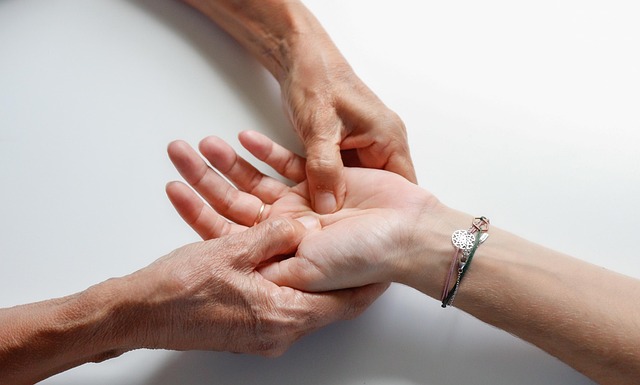Adolescent anxiety, rising due to modern pressures, impacts daily life and studies. Recognizing signs like social phobias and generalized anxiety is crucial. Therapy for teenage anxiety, especially group therapy, offers a safe space for peer connection and support, boosting confidence, teaching coping strategies, and promoting improved mental health. Cognitive-behavioral techniques, self-awareness discussions, mindfulness exercises, and stress management skills empower adolescents to actively manage their anxiety.
Adolescent anxiety is a rising concern, with many teens seeking effective management strategies. Group therapy emerges as a powerful tool, offering a safe and supportive environment for young individuals to connect and heal. This article explores the benefits of group therapy for teenage anxiety, focusing on peer support, collaborative learning, and evidence-based techniques. By understanding the unique dynamics of these sessions, parents and caregivers can guide teens towards overcoming anxiety and fostering resilience.
Understanding Teenage Anxiety: A Growing Concern
Adolescent anxiety has become a growing concern in today’s fast-paced world, affecting a significant number of young individuals. This period of life is often marked by intense emotional shifts and a heightened sense of awareness, making teenagers susceptible to various forms of anxiety disorders. From social phobias to generalized anxiety, these conditions can significantly impact their daily lives, academic performance, and overall well-being. Recognizing the signs and symptoms is the first step in offering support.
The unique challenges faced by teenagers contribute to the rise in anxiety cases. Peer pressure, academic expectations, and a constantly evolving social landscape can create a perfect storm for anxiety to flourish. As such, it’s crucial to provide accessible and effective solutions, like therapy for teenage anxiety. Group therapy, in particular, has proven to be a valuable approach, offering a safe and supportive environment where adolescents can connect with peers facing similar challenges.
Group Therapy: A Safe Space for Adolescents
Group therapy provides a unique and powerful environment for adolescents struggling with anxiety. In this setting, teens connect with peers facing similar challenges, fostering a sense of belonging and understanding. Unlike individual therapy, where the focus is on one-on-one interaction, group therapy allows individuals to witness and learn from each other’s experiences. This peer support network can significantly boost confidence and self-esteem, which are often affected by anxiety.
The safe and supportive atmosphere in a group setting encourages open communication without the pressure of judgment. Adolescents can share their fears and anxieties in a controlled environment, gaining valuable insights into their own thoughts and behaviors. Through active participation, they learn coping strategies from their peers, offering new perspectives and effective tools to manage anxiety symptoms. This collective experience can revolutionize how teens perceive and confront their anxiety, ultimately empowering them on the path to better mental health.
Benefits of Peer Support in Treatment
Peer support plays a pivotal role in group therapy for adolescent anxiety management. Teenagers benefit from knowing they are not alone in their struggles; seeing peers facing similar challenges can reduce feelings of isolation and stigma associated with mental health issues. This supportive environment encourages open communication, fostering a sense of belonging and understanding among participants.
Additionally, peer support facilitates skill-sharing and mutual learning. Adolescents can learn coping strategies from one another, gain insights into managing anxiety in social settings, and develop resilience through collective problem-solving. Such interactions often lead to more effective therapy outcomes, enhancing the overall effectiveness of treatment for teenage anxiety.
Strategies and Techniques Used in Group Sessions
In group therapy sessions designed for adolescent anxiety management, a variety of effective strategies and techniques are employed to create a supportive environment that fosters learning and growth. These include cognitive-behavioral techniques aimed at challenging negative thought patterns and replacing them with healthier alternatives. Facilitators guide discussions and activities that promote self-awareness, teaching adolescents coping mechanisms such as mindfulness exercises, relaxation techniques, and stress management skills.
Additionally, group dynamics are leveraged to enhance social learning. Members share experiences, offer peer support, and learn from one another’s strategies for managing anxiety. This collective approach not only provides a network of camaraderie but also exposes teenagers to diverse approaches, encouraging them to adopt the ones that resonate most with their personal journeys. The interactive nature of these sessions empowers adolescents to actively participate in their own therapy, fostering a sense of agency and ownership over their mental health.
Group therapy offers a powerful and effective approach to managing adolescent anxiety, providing a safe haven where teens can connect with peers facing similar challenges. By participating in group sessions, teenagers gain valuable tools and strategies to cope with anxiety while benefiting from the supportive environment and peer support. This holistic treatment method not only addresses the symptoms of anxiety but also fosters social skills, self-confidence, and resilience, equipping young individuals with lifelong coping mechanisms. For parents and caregivers, considering therapy for teenage anxiety as a group option can be transformative, enabling their adolescents to navigate this critical phase with enhanced emotional well-being and a brighter future.
